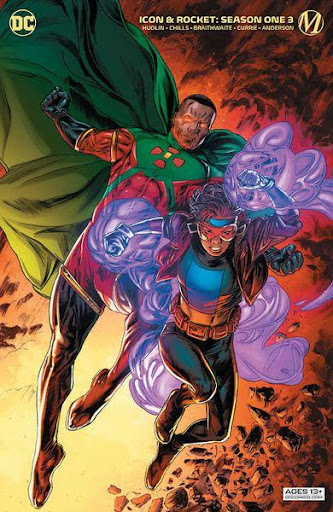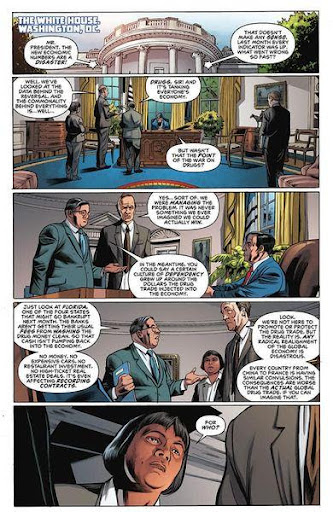Los Angeles Times
Milestone movies are in the works, and new ‘Blood Syndicate’ comic series is coming.
BY JEVON PHILLIPS OCT. 16, 2021 UPDATED 11:45 AM PT

Back in 1993, a diverse comic book company was founded by a coalition of African American men that included artist Denys Cowan, writers Dwayne McDuffie and Michael T. Davis and Black Enterprise EVP/Chief Content Officer Derek T. Dingle. Milestone Media introduced readers to characters like the teen electric hero Static (whose “Static Shock” cartoon was on the WB Network, now CW, for four seasons starting in 2000), the brilliant armored Hardware, the alien powerhouse Icon and his partner, the kinetic-energy fueled Rocket. The group was called Milestone Media, and their existence influenced and inspired a generation of comics and superhero storytellers working today.
Milestone stopped producing comics in 1997, but after adding award-winning producer Reginald Hudlin (who produced the 2020 Emmy Awards) to its team, Milestone rejoined forces with DC in February and relaunched their four main titles this summer. During the virtual WB FanDome at a Saturday panel hosted by actor Echo Kellum, Cowan and Hudlin took another step in reestablishing and furthering the brand of Milestone by announcing a number of projects, including confirming that a “Static Shock” movie is currently being written by Randy McKinnon, and will be produced by Warner Bros. and Michael B. Jordan’s Outlier Society.
DC’s animated films are very popular, so when Hudlin and Cowan also announced that Warner Bros. Animation and Warner Bros. Home Entertainment are working on a Milestone animated movie, that’s a big deal. Hudlin mentioned that they’ve gotten lots of feedback from the comics on their “Black anime style,” and some of that will translate to the animated version. The film, based on a script by “Hardware: Season One” comics writer Brandon Thomas (who is also writing several Aquaman-focused comics series for DC), will apparently not be solely focused on one character, but will introduce many of the residents of the Dakotaverse.
“This has been the thing that Milestone fans have been dreaming about for a long time, and we’re happy to give it to you, finally,” said Cowan.
Speaking of the residents of Dakota, the Milestone executive duo also revealed that they would be releasing an all-new In addition to the on-screen and publishing news, the Milestone Initiative was introduced. The program, with Ally, is the inaugural offering from DC’s Next Generation DC, a “talent recruitment, mentoring and development program designed to increase access and opportunities for writers, illustrators, and creatives from underrepresented communities,” according to its statement. It will give people the chance to apply for an opportunity to get a one-week in-person training seminar in DC’s Burbank offices, followed by an eight-week virtual technical training course through the Kubert School in the hopes of contributing to DC comic book content, expand representation and become comic book writers and artists themselves.
“Blood Syndicate” comic book series in 2022. The series, which featured a group of powered individuals from rival gangs who come together to form a team, was a fan favorite during their early-’90s run. No writer or artist has been named for the series yet.
In addition to announcing “Blood Syndicate,” a 1,300-page Milestone anthology will also be released in February 2022 as a part of DC’s Black History Month celebrations. Stories will be featured from Cowan, the late McDuffie, Ivan Velez, John Rozum, Frazer Irving, M.D. Bright and more. The compendium collects issues from the original series: Nos. 1-12 of “Blood Syndicate,” “Hardware” Nos. 1-12, “Icon” Nos. 1-10, “Static” Nos. 1-8, “Xombi” Nos. 1-8 and “Shadow Cabinet” No. 0.
Comment + Permalink





